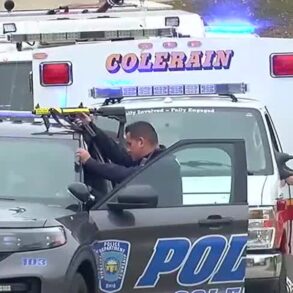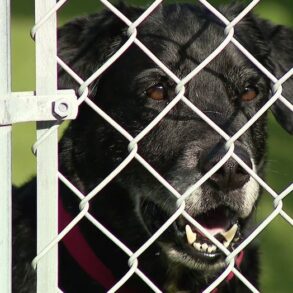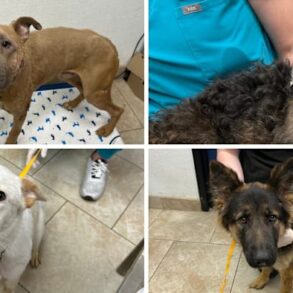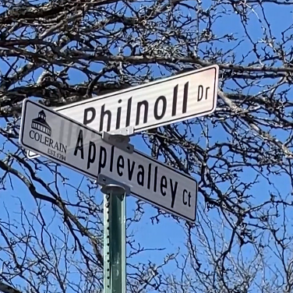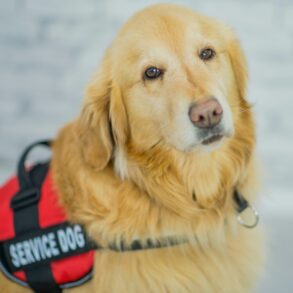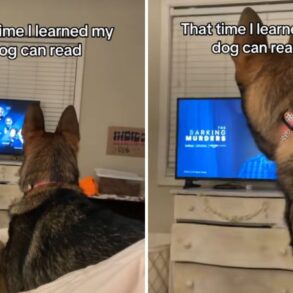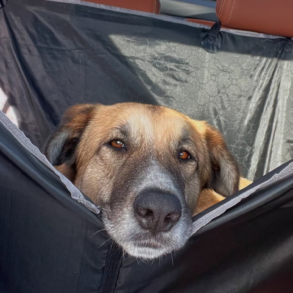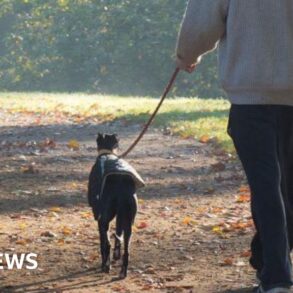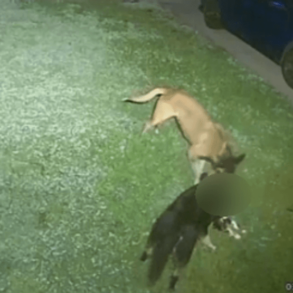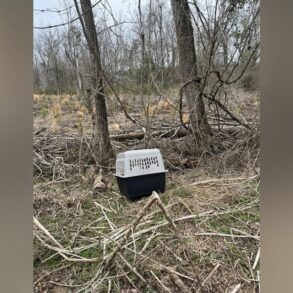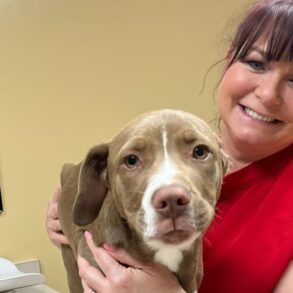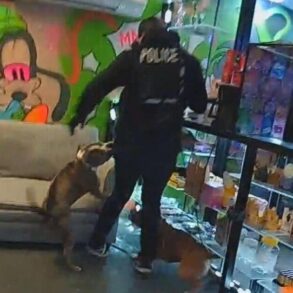The nonprofit helps people in need meet the expenses of spaying, neutering and providing for their pets
By Jim Flint for Ashland.news
Amid the struggles of poverty in the Rogue Valley, there is an organization offering a unique lifeline — not to people, but to their pets.
With spay-neuter programs and vital support services, Rogue Valley Street Dogs is transforming lives, one paw at a time.
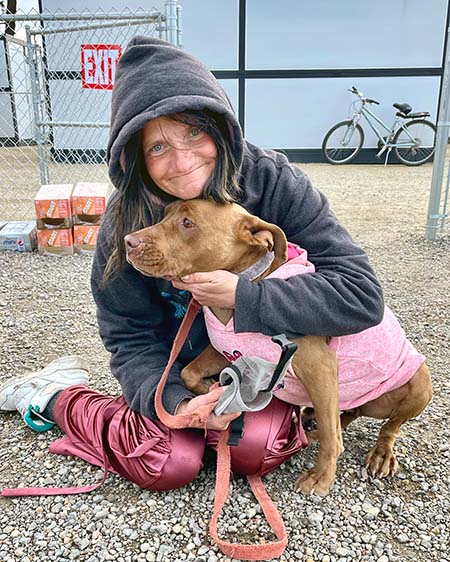
Founded by J.W. and Nancy Lyon in 2013 as Street Dog Project, it first operated as a program of Friends of the Animal Shelter.
Now residents of Raleigh, North Carolina, the couple has a long history with animal welfare, involved with projects and serving on animal advocacy boards in the Greater Seattle area and Whidbey Island, Washington, before moving to Ashland.
When they moved to Southern Oregon, they got involved in the community by serving food at Uncle Foods Diner in Ashland, a Peace House initiative to fill gaps in food security.
“We began to meet the unhoused community who brought their dogs along to the meal,” Nancy Lyon said. “We offered to spay a few dogs and self-funded the effort for a couple of years.”
Eventually the effort transformed into a program and became affiliated with FOTAS.
“J.W. was on the FOTAS board at the time and lobbied fellow board members hard,” Nancy Lyon said. “FOTAS gave us a budget of $500 the first year to spay and neuter dogs, and we were thrilled.”
Going their own way
As part of FOTAS, they were not allowed to do their own fundraising. So they applied for and received their own 501(c)(3) status as a separate organization.
Laura Cuddy, a Talent resident, became involved in 2013 when she was a FOTAS volunteer. She is president of the Rogue Valley Street Dogs board.



“I attended an informational session at the shelter with our founders, Nancy and J.W. Lyon,” she said. “I was instantly hooked and have never looked back.
With a devotion to animals all her life and with a great deal of compassion for people as well, she was attracted to Street Dogs’ holistic approach in serving the unhoused and low-income people and their pets.
“I believe that pets are a lifeline for the humans who love them, and I’m a firm believer in spay and neuter programs to reduce overpopulation and suffering,” Cuddy said. “In my own darkest hours, my dog was truly the reason I did not give up.”
Cuddy characterizes most rescues and shelters in Southern Oregon as “wonderful and well-meaning,” but believes they alone can’t solve all the pet crises. She says Street Dogs’ goal is to work with both the people and the animals to prevent pets from ever entering overcrowded shelters and rescues in the first place.
She views recognizing the intersection of animal welfare and social issues as key to Street Dogs’ mission.
“They are completely intertwined,” she said. “Poverty, systemic challenges and barriers to access for care lie at the heart of both.”
Population control
Funding and facilitating spay and neuter services are their top priorities. Street Dogs gathers information on pets needing those services, contact details and people’s ability to transport the animals. They follow up with finding appointments with local veterinarians who partner with them and arrange for transportation if needed.
Street Dogs helps meet the needs of both the pets and their humans: high-quality pet food, leashes, harnesses, coats in the winter, bowls, blankets, boots, beds and other supplies.
The organization provides basic vaccines — DAPP (distemper, adenovirus, parainfluenza and parvovirus) for dogs and FVRP (feline viral rhinotracheitis, calicivirus and panleukopenia) for cats.



“Preventing diseases like parvo is critical,” Cuddy said. “We also have a groomer who can do nail trims, education, and assistance with skin and hair problems.”
Flea, tick and deworming medications are offered, as well as care for wounds, ear problems and the like. Street Dogs pays for a limited number of rabies vaccines at the FOTAS shot clinic for pets that qualify.
Street Dogs depends on donors to fund its work. In addition to donations from individuals and businesses, limited funding has come from some human social service organizations.
Qualification for receiving Street Dogs’ help is based on housing and income information.
“If folks are housed or working, we ask if they can contribute a copay manageable for them,” Cuddy said.
From one cat to 420,000 kittens
Street Dogs’ mission is a challenging one, especially when considering the fertility rate of pets.
“In six years, one female dog and her offspring can be the source of 67,000 puppies,” Cuddy said. “And in just seven years, one female cat and her young can produce 420,000 kittens.”
Street Dogs has funded and facilitated more than 500 spays and neuters so far in 2024, mostly females.
“Continuing at this pace and increasing our numbers each year, we’re making a meaningful impact on pet overpopulation in our community.”
Volunteers spend a lot of time building trust with their clients. Kindness, compassion, and respect are in their toolbox.
People do love their animals.
“One of our clients lives in her car with her beloved Akita,” Cuddy said. “She was eager to get her dog spayed, but the only appointment we could get was in Klamath Falls. She borrowed chains from one of our volunteers and drove through a snowstorm and slept the night in frigid temperatures so she would not miss the appointment.”
Volunteer sees the impact
Lewis Maurer of Talent is one of the volunteers. He first encountered Street Dogs at one of its fundraisers.
“I was drawn by their passion for improving the lives of animals in need,” he said.



Initially his focus was solely on the dogs, and he helped with spay and neuter appointments. As he became more involved and began volunteering at some of the outreach events, he met many of the dog owners.
“I was struck by the deep bond they shared with their pets,” he said. “Their care, dedication and love for their dogs were truly moving. It opened my eyes to the profound importance these animals hold in their owners’ lives.”
He says he is grateful to be a part of the effort and to witness firsthand the transformative impact of Street Dogs’ work.
For more information about the organization and to learn how to volunteer or donate, go to roguevalleystreetdogs.org.
Freelance writer Jim Flint is a retired newspaper publisher and editor. Email him at [email protected].
This post was originally published on this site be sure to check out more of their content.




